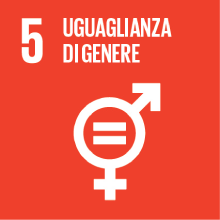18TH CENTURY STUDIES
- Anno accademico
- 2018/2019 Programmi anni precedenti
- Titolo corso in inglese
- 18TH CENTURY STUDIES
- Codice insegnamento
- LMJ370 (AF:278439 AR:140168)
- Modalità
- In presenza
- Crediti formativi universitari
- 12
- Livello laurea
- Laurea magistrale (DM270)
- Settore scientifico disciplinare
- L-LIN/10
- Periodo
- I Semestre
- Anno corso
- 1
- Sede
- VENEZIA
Inquadramento dell'insegnamento nel percorso del corso di studio
1) to increase the knowledge and comprehension of English literature at higher (M.A.) level, through the study of its development in the eighteenth century;
2) to acquire a better command of theoretical approaches, hermeneutical tools for textual analysis and close reading; along with acquiring the competence to contextualise them in the historical and literary background;
3) to be able to comprehend English culture (specifically in the eighteenth century) through a better understanding of its relevant texts and documents. Students will learn the history of English literature both from a cultural and an aesthetic viewpoint, as well as in its relation with the political and social history of England and Great Britain. They will apply their hermeneutic abilities to the comprehension of complex literary texts, their relation with the cultural and socio-political background, their rhetorical strategies and aesthetic qualities. They will be able to produce a discussion of complex texts and connect them to the historical framework to which they belong.
The module will be taught entirely in English.
Risultati di apprendimento attesi
1) to conduct an autonomous bibliographic search in English;
2) to provide critical commentaries, short essays, and a final thesis in English, using the critical-hermeneutical knowledge acquired in the module, also through a personal reading of texts;
3) to enter a dialogue with the critical state of art on texts and themes, and debate one's positions in public;
4) to translate literary text and critical analyses into Italian with a good knowledge of the theories and varieties of translation;
5) to operate in various intercultural contexts.
In the Joint Degree / Double Degree course the acquired competence with be implemented in an interaction with the students, and in the contexts, of the universities participating in the consortium.
Prerequisiti
A general knowledge of history and cultural history in the seventeenth and eigheenth centuries will be helpful.
An excellent command of the English language (C1) will be needed in order to understand and comment on complex texts.
Contenuti
The module will focus on the main issues discussed in eighteenth-century English literature, with special regard to the themes of the development of a rational thought based on the empirical-critical study of the world and self by the intellect; the rise of a philosophy and culture of the passions felt through the senses (sentiments); the development of theories of sympathy and fellow-feeling; and the urge to, and wish for, happiness understood as central in man's psychological and social nature.
Those themes and issues will be analysed, discussed and commented on, by using excerpts from philosophical and cultural works of the age, as well as some chosen literary texts (as in the list below).
Testi di riferimento
1. Short excerpts from essays by John Locke, Shaftesbury, Francis Hutcheson, Adam Smith (provided in class and referred to online during the course);
2. Sarah Fielding, "David Simple" (University Press of Kentucky, or Oxford Classics)
3. Henry Mackenzie, "The Man of Feeling" (Broadview Press, or Oxford Classics);
4. Hannah More, "Sensibility: An Epistle to the Honourable Mrs. Boscawen" (online: http://www.english.upenn.edu/~mgamer/Etexts/more.html )
5. Laurence Sterne, "A Sentimental Journey trough France and Italy" (Hackett)
6. Mary Wollstonecraft, "Mary" (Oxford Classics)
Criticism:
Roy Porter, "Enlightenment" (Penguin; chapters: "Introduction", 1, 2, 3, 5, 6, 7, 11, 12, 13, 14, 17, 19)
R.F. Brissenden, "Virtue in Distress: Studies in the Novel of Sentiment from Richardson to Sade"(Macmillan; chapters1 to 6)
Further critical essays o specific novels will be communicated by the teacher during classes.
Non attending students will have to contact the teacher for further readings. Further critical readings for non attending students will be uploaded online.
Modalità di verifica dell'apprendimento
The test will be made of questions with open answers and will be divided into three parts:
A. General themes and topics (history of 18th-century literature and culture): students will choose 4 out of 8 questions (answers will have to be about 10 lines long)
B. A short essay (one sheet long) based on one of the authors/themes discussed in class; students will choose 1 out of 3 questions;
C. A commentary (one sheet long) on a passage selected from one of the texts in the programme, meant to discuss the rhetorical (as well as poetic, narrative, etc.) strategies, the themes, the connections to the historical background in the text; students will choose 1 out of 2 passages to comment on.
Students will be allowed to use a monlingual English dictionary. No other dictionaries will be allowed. The use of smartphones, tablets and other devices will be forbidden during the exam.
Time allowed to complete the written exam: 2 hours
Students who attend at least 70% of classes can give a presentation on a topic relevant to the course. The relevant readings will be agreed upon with the teacher through a. guided bibliographic search. Those students who give a presentation won't be asked to answer question C in the written test.
See also "Altre informazioni"
Metodi didattici
Lingua di insegnamento
Altre informazioni
The students who are unable to attend classes (“non frequentanti”) will find additional materials to read online in the personal area (the additional texts are indicated as "Non frequentanti" in addition to the "compulsory readings")
They are advised to see the teacher during his office hours or by appointment (not via email).
Modalità di esame
Obiettivi Agenda 2030 per lo sviluppo sostenibile
Questo insegnamento tratta argomenti connessi alla macroarea "Povertà e disuguaglianze" e concorre alla realizzazione dei relativi obiettivi ONU dell'Agenda 2030 per lo Sviluppo Sostenibile




